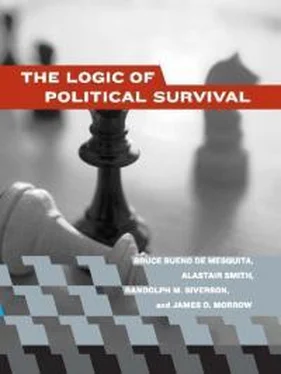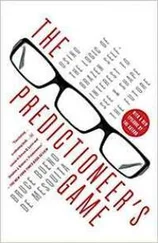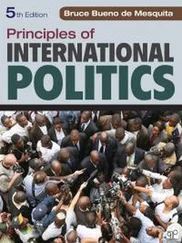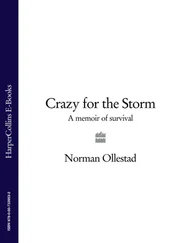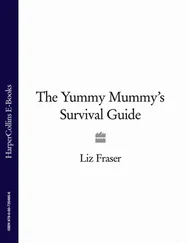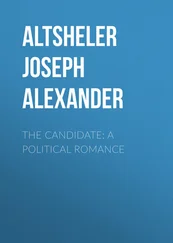Virtually all societies throughout human history have sorted people into and out of the selectorate based on different combinations of at least four defining categories of personal characteristics. These defining characteristics include (1) personal origin: birthplace and lineage; (2) special proficiency: skills, beliefs, and/or knowledge; (3) wealth; and (4) gender and/or age.
These dimensions clearly differ in their inherent scarcity and in the social prospects of altering their scarcity. Selectorates have been defined to include only one or any mix of these four elements.
Personal Origin: Birthplace and Lineage
The birthright to participate in choosing and maintaining leaders and to gain access to the largesse of the incumbent leadership divides along at least two important dimensions. One is place of birth. Until relatively recently, birth within a polity’s territorial boundaries was, in many instances, necessary but not sufficient for membership in its selectorate. With the advent of naturalization it has become possible to overcome the failure to be born in a polity. The ease with which birthplace can be overcome as an impediment to entry into the selectorate varies greatly across modern societies. Some countries, such as the United States or Canada, provide easy access to citizenship. Others, like Japan and Saudi Arabia, remain more exclusionary. Birthplace by itself does not create great scarcity as a quality for selectorate membership. Throughout most of history almost everyone lived in the society in which they were born. Although mass migrations have occurred—for instance, the movement of people out of the Asian steppes and into Europe—individuals moving from one society to another in large numbers is a recent phenomenon. To the best of our knowledge, no society defines selectorate membership only in terms of birthplace, though many make birthplace a necessary condition.
The second birthright dimension is lineage—that is, membership in selected “aristocratic” families. The right lineage is sufficient in some societies for entry into the selectorate. Any eldest surviving son—and sometimes daughter if there was no son—of a twelfth-century English baron, for example, was assured of selectorate membership on his father’s death. Any Romanov could be in the Russian selectorate under the czars, whereas being a Romanov was a guarantee of exclusion from the Bolshevik selectorate.
Acceptable lineage is an extremely restrictive, exclusionary condition of birth. As such, it is exceedingly scarce. It is inheritable but, barring unusual circumstances, cannot be assigned or transferred to others. One either is born of the “right blood” or not. The pool of people with the designated lineage can grow within a strictly hereditary system only by procreation or, in rare instances, by adoption or recognition of illegitimate children. Polities, like hereditary monarchies, that rely on lineage as a critical characteristic required of those who can influence the selection or deposition of leaders necessarily have a small selectorate. Many societies that relied on lineage gradually adapted their requirements for entry into the selectorate to include substitute characteristics—including, for instance, wealth or military prowess—thereby expanding the possible pool of selectorate members. If other criteria were added while maintaining the requirement of acceptable lineage, the selectorate would be even smaller.
Special Proficiency: Skills, Beliefs, and/or Knowledge
We group skills, knowledge, and beliefs together into a single category of special proficiency. We do so because these have in common the possibility and incentives for creating artificial scarcity through regulation. This category plays a central and special role in the size of winning coalitions, especially in recent history, and has played a prominent part in determining selectorate size across much of human history. This class of attributes refers to possession of or control over such characteristics as presumed spiritual or magic powers, ideological or religious calling, military prowess, or technical knowledge. Expertise of this sort sometimes is sufficient for selectorate membership. More often it is necessary but not sufficient, and sometimes it is only contributory. These special attributes often are added to broader criteria in narrowing the choice of selectorate members forming the winning coalition.
Using criteria that focus on proficiencies of the sort just enumerated is associated with, for example, tribal societies, religious movements, theocracies, revolutionary ideologies, military regimes, and university administrations. Religious beliefs and powers, for instance, have sometimes facilitated the efforts of clerical leaders to coerce the civilian society into accepting their political leadership. The Catholic Church achieved this level of authority during the high Middle Ages, thanks to its skillful use of its exclusive right to provide religious sacraments and its related influence over salvation. The pope may not have had an army, but the Catholic clergy has the exclusive authority to grant absolution or condemn people to the threat of eternal damnation, a powerful prerogative in societies that subscribe to Catholic beliefs. So powerful was the Church’s sway that for several centuries no European king could be legitimately crowned without the Church’s blessing, making the pope personally a member of the selectorate in many European kingdoms. By carefully guarding and limiting the right to acquire religious mastery, the Catholic hierarchy created an artificially restricted selectorate within its domain. With the success of Protestant reformers, that restriction on selectorate size quickly diminished in Europe following the Thirty Years War. Similar accounts are given for the power of the priesthood among the Maya (Gallenkamp 1985, 108, 112, 115), as well as in Pharaonic Egypt and many other ancient civilizations.
Other forms of proficiency have played a role comparable to that of religious authority. Hunter-gatherer societies, for example, favored skilled hunters by giving them a prominent role in choosing tribal or clan chiefs (Diamond 1997). Skilled hunters were revered because they could resolve a fundamental social problem, providing an adequate supply of food, just as clergy members were sometimes revered for resolving another fundamental social problem, providing spiritual assurance. Like theocracies and hunter-gatherer societies, universities also emphasize special proficiency in choosing their selectorate. They grant a say to professors (and wealthy or influential alumni and dignitaries—that is, the board of trustees—and more occasionally to students) in choosing their leadership and only rarely to secretarial or maintenance staff. The apparent notion is that the special skills and knowledge possessed by professors (and trustees or students) make them better able to determine who should lead the university. Knowledge-based selectorates, as in universities, are much less common than theocratic or weapons-based selectorates. Theocratic societies coerce their way into political control through the threat of damnation. Weapons-based selectorates, starting with early hunters and continuing on to modern military regimes, coerce their way into political control through their domination over the means of taking lives.
Not surprisingly, military prowess is among the most common special skills used to determine selectorate membership. Possession or control over arms is a special type of expertise that continues to play a crucial role in governance in many societies. Whether one looks to the Indian caste system or the European system of estates, one sees the clergy (religious proficiency) and the military (arms proficiency) singled out for special recognition. Military prowess and control over arms is a proficiency that can offer its owners the opportunity to provide counsel to civilian leaders. Beyond counsel, military skills also can be used to coerce others into accepting the military leadership as the political leadership.
Читать дальше
